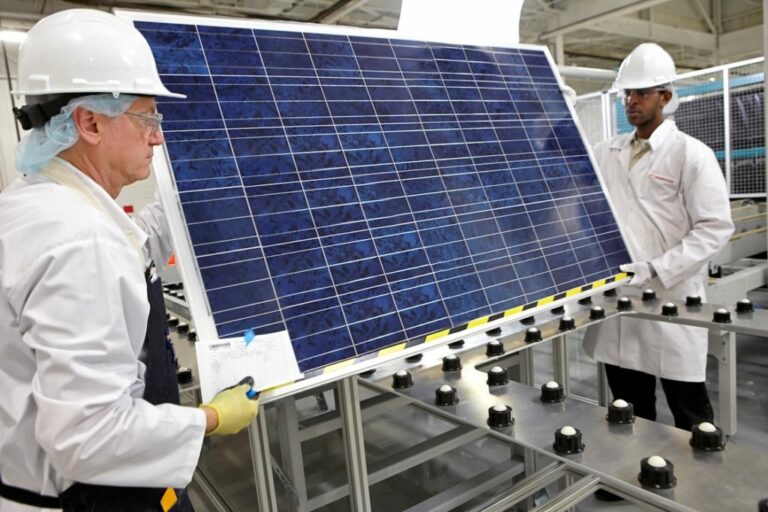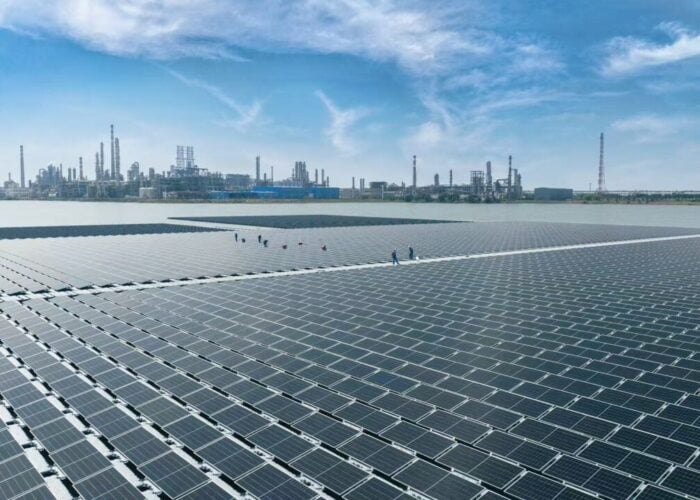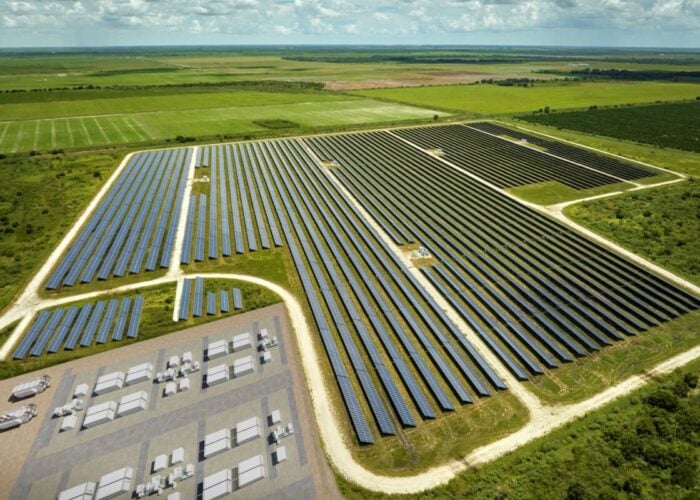
Solar manufacturing major Canadian Solar has posted increased revenues and profits in its Q2 2024 financial results, driven by an increase in PV module shipments that outweighed the continued decline of module average selling prices (ASPs).
Net revenues for the quarter—for both CSI Solar, its module and storage business, and Recurrent Energy, the manufacturing and project development businesses—were US$1.6 billion, a 23% increase from US$1.3 billion in Q1. Profits rose by 12% quarter-on-quarter (QoQ) to US$282 million. These increases were attributed to increased module shipments.
Unlock unlimited access for 12 whole months of distinctive global analysis
Photovoltaics International is now included.
- Regular insight and analysis of the industry’s biggest developments
- In-depth interviews with the industry’s leading figures
- Unlimited digital access to the PV Tech Power journal catalogue
- Unlimited digital access to the Photovoltaics International journal catalogue
- Access to more than 1,000 technical papers
- Discounts on Solar Media’s portfolio of events, in-person and virtual
However, both of these figures were lower than the same period in 2023, by 31% and 36%, respectively. Canadian Solar gave the same explanation for its yearly decreases as in its Q1 results: “a decline in module ASPs and lower project sales, partially offset by higher battery energy storage solutions sales.”
Gross margin for Q2 2024 was 17.2%, compared with 19% in Q1 and 18.6% in Q2 2023. This drop was also attributed to lower module ASPs, though the marginally better comparison with the 2023 results was offset by lower manufacturing costs in this quarter.
Net income was US$4 million, a dramatic 66% decrease from US$12 million in Q1 and a decrease of over 97% from US$170 million year-on-year (YoY).
The company—which is listed in New York but manufactures predominantly in China and is commonly regarded alongside other major Chinese producers—shipped 8.2GW of modules in Q2 2024. This is a return to the sort of numbers set in its “record” shipment figures of 2023 and a sharp increase from 6.3GW in Q1.
“We achieved solid results in the second quarter of 2024, with shipments, revenue, and gross margin meeting or surpassing our previous guidance,” said Shawn Qu, chairman and CEO of Canadian Solar.
He continued: “Today, we have reached an optimal scale—large enough to maintain a highly competitive cost structure yet lean enough to adapt swiftly to changes in industry dynamics.”
According to figures published in its earnings call presentation, Canadian Solar currently has 60GW of module production capacity—45GW in China and 4GW in the US—48GW of cell production capacity and 28GW of wafer capacity. By the end of the year, it expects to expand its Chinese wafer capacity by a further 3GW and add 1GW to its Texas, US module capacity.
Yan Zhuang, president of CSI Solar said: “Amidst fierce industry competition, we maintained our focus on profitability while also increasing volume this quarter. As polysilicon prices further declined, the resulting price decreases across the upstream supply chain helped reduce manufacturing costs.
“Given the current industry landscape, we have decided to delay certain upstream investments to further prioritise profitability. In these situations, our partial vertical integration affords us strategic agility.”
Recurrent Energy and CSI Solar
Canadian Solar also included the individual results of its subsidiaries, Recurrent energy and CSI Solar.
Recurrent posted operational losses of US$9 million in Q2 2024, with a solar PV project pipeline of 27GWP and a battery energy storage system pipeline of 63GWh. Net revenues were US$50 million, up from US$39 million in Q1 but down from US$360 million in Q2 2023.
The company is in the process of shifting its business model from a develop-to-sell model—where it would develop projects to be owned and operated by other entities—to an independent power producer (IPP) model where it retains greater ownership of its projects throughout their lifecycles. It said this is designed to “increase revenues generated through recurring income, such as power sales, operations and maintenance, and asset management income.”
To that end, Q2 saw Recurrent Energy reach an initial close on a US$500 million, 20% equity investment from the global asset-owning giant BlackRock. This investment will aid in Recurrent’s transition to an IPP, the company said.
CSI Solar posted net revenues of US$1.7 billion, gross profit of US$290 million and a margin of 16.7%.
Canadian Solar expects its total module shipments for the full year 2024 to be between 32-36GW. Total revenues are expected to be in the range of US$6.5 billion to US$7.5 billion.
Qu said: “We are beginning to see signs of market rationalisation, as module pricing and input costs reach record lows. We anticipate stabilisation in the second half of the year.”







